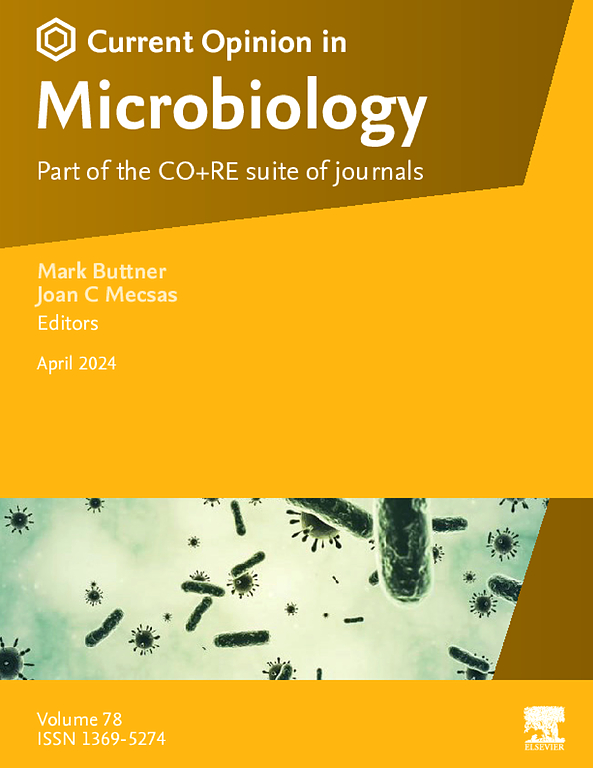用于研究和设计树木微生物组的合成微生物群落:挑战和机遇
IF 7.5
2区 生物学
Q1 MICROBIOLOGY
引用次数: 0
摘要
树木对自然和城市环境中的生态系统都至关重要,但它们日益受到与气候变化和人类活动有关的非生物和生物压力的威胁。利用基于微生物的方法和微生物组工程来保护植物和作物生产是有希望的,但是它们在树木上的应用提出了具体的挑战。在这里,我们回顾了树木微生物组的知识,并概述了利用树木相关微生物群落的机会。我们描述了与树种合作所固有的具体挑战,并强调了如何使用合成微生物群落(SynComs)来研究和设计树木微生物组。最后,我们提出了未来的研究重点,包括:(1)为实验工作开发模型树系统,(2)获得树木特异性培养材料和SynCom,(3)优化树木SynCom接种方法。解决这些方法上的挑战将使我们能够认识到树木微生物组的潜力,并解决树木健康和提供生态系统服务方面的全球挑战。本文章由计算机程序翻译,如有差异,请以英文原文为准。
Synthetic microbial communities for studying and engineering the tree microbiome: challenges and opportunities
Trees are essential to ecosystems in both natural and urban environments, yet they are increasingly threatened by abiotic and biotic stresses linked to climate change and human activities. The use of microbial-based approaches and microbiome engineering to safeguard plants and crop production is promising, but their application in trees raises specific challenges. Here, we review knowledge on the tree microbiome and outline opportunities to leverage tree-associated microbial communities. We describe the specific challenges inherent to working with tree species and highlight how Synthetic Microbial Communities (SynComs) can be used to study and engineer tree microbiomes. Finally, we propose that future research priorities include (1) developing model tree systems for experimental work, (2) obtaining tree-specific culture collections and SynComs, and (3) optimising methods for tree SynCom inoculation. Unlocking these methodological challenges will enable us to realise the potential of the tree microbiome and address global challenges in tree health and the provision of ecosystem services.
求助全文
通过发布文献求助,成功后即可免费获取论文全文。
去求助
来源期刊

Current opinion in microbiology
生物-微生物学
CiteScore
10.00
自引率
0.00%
发文量
114
审稿时长
6-12 weeks
期刊介绍:
Current Opinion in Microbiology is a systematic review journal that aims to provide specialists with a unique and educational platform to keep up-to-date with the expanding volume of information published in the field of microbiology. It consists of 6 issues per year covering the following 11 sections, each of which is reviewed once a year:
Host-microbe interactions: bacteria
Cell regulation
Environmental microbiology
Host-microbe interactions: fungi/parasites/viruses
Antimicrobials
Microbial systems biology
Growth and development: eukaryotes/prokaryotes
 求助内容:
求助内容: 应助结果提醒方式:
应助结果提醒方式:


